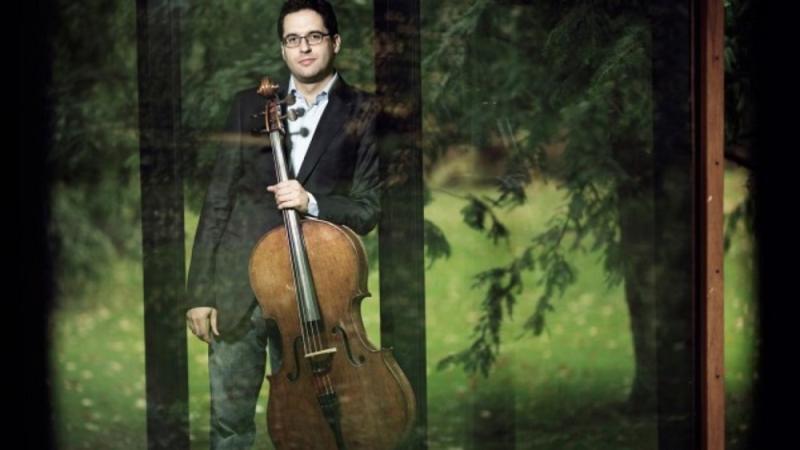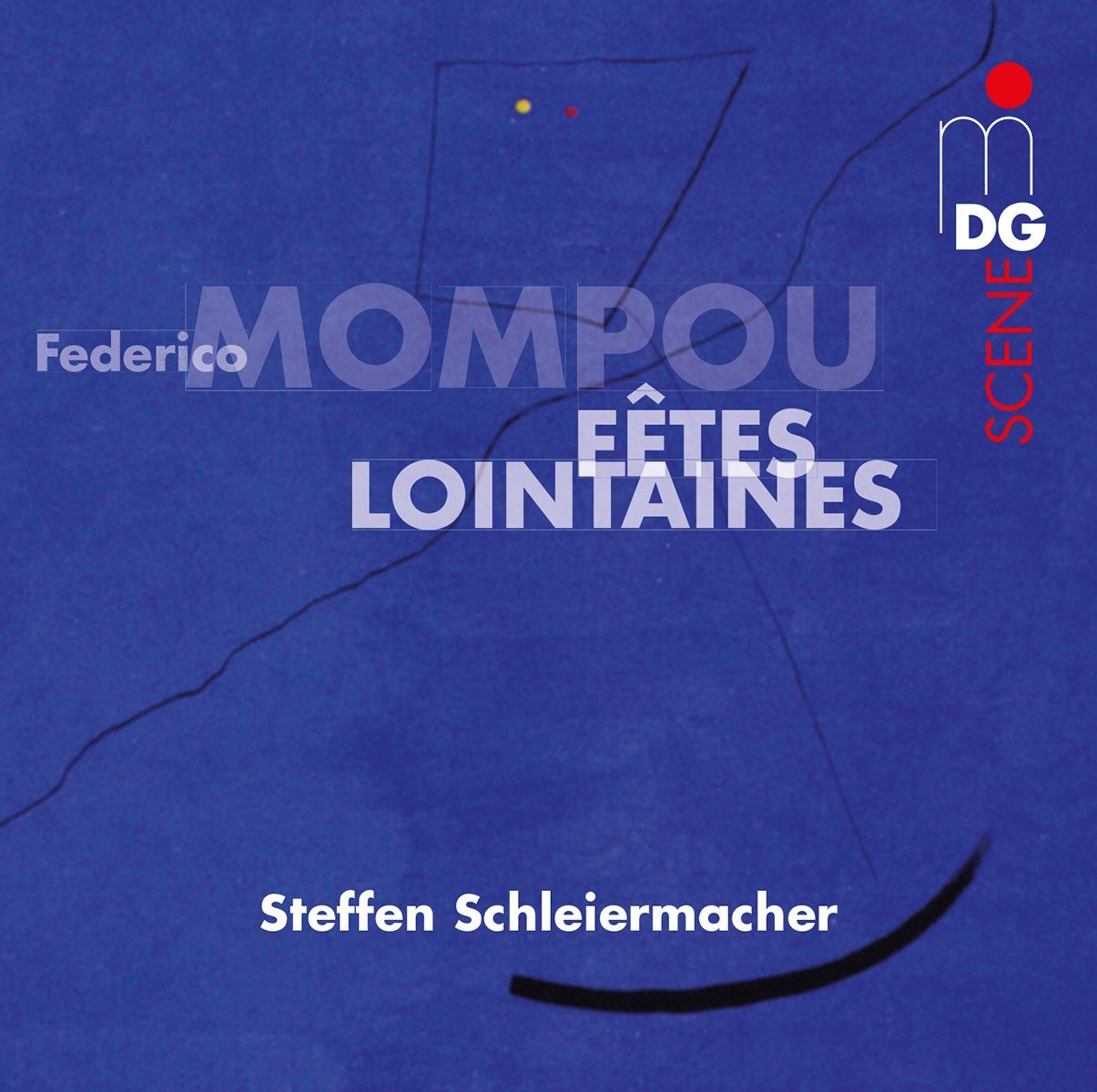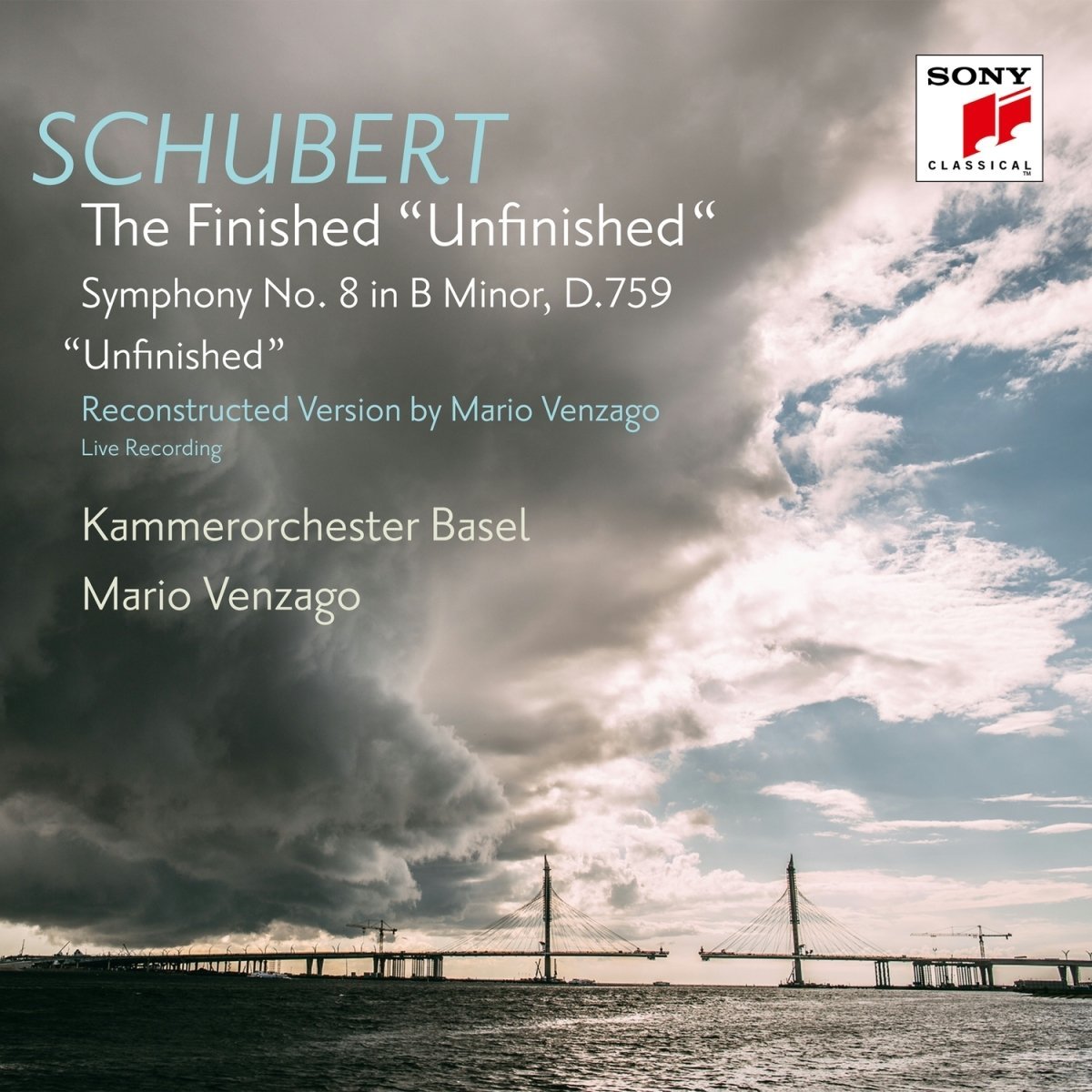Classical CDs Weekly: Mompou, Schubert, Martinů, Shostakovich | reviews, news & interviews
Classical CDs Weekly: Mompou, Schubert, Martinů, Shostakovich
Classical CDs Weekly: Mompou, Schubert, Martinů, Shostakovich
Outré Spanish piano, a finished Unfinished, and two cello concertos

 Mompou: Fêtes Lointaines Steffen Schleiermacher (piano) (MDG)
Mompou: Fêtes Lointaines Steffen Schleiermacher (piano) (MDG)
“I am not a composer and don't want to be regarded as one… somehow, I always have the feeling that it comes to me from outside.” There is indeed something otherworldly about Federico Mompou’s spare, understated music, and it’s interesting that several pianists who excel in this repertoire also specialise in performing works by other fringe minimalists. Steffen Schleiermacher is one, having previously recorded discs of Feldman and Cage. Not that Mompou’s output is as outré as theirs: you’d place him close to Satie and Poulenc on the 20th century keyboard spectrum. Mompou’s music is soft-edged and mysterious. It creeps up on you like a benign fungus. One morning you'll find that you’ve acquired a small library of Mompou CDs, with no recollection of actually buying them. There's a glorious, budget-priced box set containing Mompou’s own performances of his music, in decent analogue sound. It’s essential listening. But, if you’re looking for an entry point, Schleiermacher’s latest volume has loads to commend it, both interpretatively and in terms of production values: MDG’s sound has incredible presence and realism.
Schleiermacher understands Mompou perfectly. Try him in the second and third movements of Charmes: the former played with incredible sensitivity, the latter’s rippling opening like diving into a warm bath. The unexpectedly extrovert moments are wondrous. Like the guitarist depicted in the first of Mompou’s Suburbis, or the clangorous second part of the Fêtes Lointaines. There’s little conventional development – things happen, and then stop. Schleiermacher smartly refers to Mompou's “musical inertia”, though in an entirely positive way. This composer says exactly what he needs to say, and then moves on. You're always left wanting more. A really impressive disc, and a lovely introduction to a fascinating, unjustly neglected figure.  Schubert: The Finished “Unfinished” – Symphony No 8 (Reconstructed version by Mario Venzago) Kammerorchester Basel/Mario Venzago (Sony)
Schubert: The Finished “Unfinished” – Symphony No 8 (Reconstructed version by Mario Venzago) Kammerorchester Basel/Mario Venzago (Sony)
Schubert’s 8th Symphony has been completed before, and evidence suggests that Schubert did actually finish the piece. Some conductors perform the two extant movements as if they're a poignant last gasp – which ignores the fact that Schubert lived for a further five years and was composing to the very end. Not everything which Mario Venzago does with the piece is totally convincing, but the high spots are terrific. Especially the opening movement, taken at a bracing, Beethovenian lick. The Kammerorchester Basel’s lean sound is utterly right, the “uninhibited brutality” of the climax a real shocker. Venzago’s flowing Andante con moto is less funereal than usual – and why should it be, when we’ve a further two movements to go? What happens next isn't on the level of Deryck Cooke’s realisation of Mahler 10, but it worked for me.
Most of Schubert's Scherzo was left in short score. Venzago’s orchestration is idiomatic, and it's played with infectious bounce. His sleeve notes suggest that the symphony’s B minor finale was recycled at short notice as part of Schubert's incidental music to the play Rosamunde. It's thrilling, sharp-edged music, and Venzago’s decision to stay in B minor for the closing bars feels emotionally right. Trombones and upper winds are especially telling. More contentious is his cheeky reprisal of the symphony's opening, just before the coda. This will enrage po-faced purists. But, somehow, it works, despite sounding more like Bruckner than Schubert. Incisively performed and richly recorded, this is an enjoyable listening experience. Venzago's wordy sleeve note is a fun read, though I'd suggest digesting it with a hefty dose of salt.
 Shostakovich: Cello Concerto No 2, Martinů: Cello Concerto No 2 Christian Poltéra (cello), Deutsches Symphonie-Orchester Berlin/Gilbert Varga (BIS)
Shostakovich: Cello Concerto No 2, Martinů: Cello Concerto No 2 Christian Poltéra (cello), Deutsches Symphonie-Orchester Berlin/Gilbert Varga (BIS)
Shostakovich and Martinů each wrote a pair of cello concertos, and with both composers it's the earlier one which has achieved greater popularity. Putting their respective second cello concertos on a single disc hasn't resulted in a B-list double bill. On the contrary: these two works stand alone very nicely when no invidious comparisons need to be made. Christian Poltéra’s performance of the Shostakovich is exemplary, lending this dark, late masterpiece fleeting touches of warmth and humanity. You could never call this a positive piece, but Poltéra refuses to sound maudlin. His Allegretto is sharp and witty, his handling of the last movement’s lyrical theme heartfelt as well as ironic. The final percussive flurries, described by Gennady Rozhdestvensky as the sounds made by prisoners tapping out messages on water pipes, are superbly done, Poltéra responding with a musical shrug that suggests he’d be an excellent bass guitarist.
The Shostakovich was premiered in 1966, during a starry concert celebrating the composer's 60th birthday. Martinu’s Cello Concerto No. 2 was completed in 1945, but lay unperformed for nearly 20 years. What a loss – this is an exquisite, luminous work. Gilbert Varga’s Deutsche Symphonie-Orchester Berlin are superb accompanists: the textures are never too thick and the additive rhythms have plenty of lift. Sceptics might argue that Martinu overstretches his material, but Poltéra's charisma is winning. Especially in the introspective cadenza which interrupts the last movement's forward motion. The dash to the finish is electrifying. A beguiling work, ripe for rediscovery.
Share this article
The future of Arts Journalism
You can stop theartsdesk.com closing!
We urgently need financing to survive. Our fundraising drive has thus far raised £49,000 but we need to reach £100,000 or we will be forced to close. Please contribute here: https://gofund.me/c3f6033d
And if you can forward this information to anyone who might assist, we’d be grateful.

Subscribe to theartsdesk.com
Thank you for continuing to read our work on theartsdesk.com. For unlimited access to every article in its entirety, including our archive of more than 15,000 pieces, we're asking for £5 per month or £40 per year. We feel it's a very good deal, and hope you do too.
To take a subscription now simply click here.
And if you're looking for that extra gift for a friend or family member, why not treat them to a theartsdesk.com gift subscription?
more Classical music
 Kempf, Brno Philharmonic, Davies, Bridgewater Hall, Manchester review - European tradition meets American jazz
Bouncing Czechs enjoy their Gershwin and Brubeck alongside Janáček and Dvořák
Kempf, Brno Philharmonic, Davies, Bridgewater Hall, Manchester review - European tradition meets American jazz
Bouncing Czechs enjoy their Gershwin and Brubeck alongside Janáček and Dvořák
 Solomon, OAE, Butt, QEH review - daft Biblical whitewashing with great choruses
Even a top soprano and mezzo can’t make this Handel paean wholly convincing
Solomon, OAE, Butt, QEH review - daft Biblical whitewashing with great choruses
Even a top soprano and mezzo can’t make this Handel paean wholly convincing
 Two-Piano Gala, Kings Place review - shining constellations
London Piano Festival curators and illustrious friends entertain and enlighten
Two-Piano Gala, Kings Place review - shining constellations
London Piano Festival curators and illustrious friends entertain and enlighten
 Echo Vocal Ensemble, Latto, Union Chapel review - eclectic choral programme garlanded with dance
Beautiful singing at the heart of an imaginative and stylistically varied concert
Echo Vocal Ensemble, Latto, Union Chapel review - eclectic choral programme garlanded with dance
Beautiful singing at the heart of an imaginative and stylistically varied concert
 Scott, Irish Baroque Orchestra, Whelan, RIAM, Dublin review - towards a Mozart masterpiece
Characteristic joy and enlightenment from this team, but a valveless horn brings problems
Scott, Irish Baroque Orchestra, Whelan, RIAM, Dublin review - towards a Mozart masterpiece
Characteristic joy and enlightenment from this team, but a valveless horn brings problems
 Classical CDs: Voice flutes, flugelhorns and froth
Baroque sonatas, English orchestral music and an emotionally-charged vocal recital
Classical CDs: Voice flutes, flugelhorns and froth
Baroque sonatas, English orchestral music and an emotionally-charged vocal recital
 Kanneh-Mason, Britten Sinfonia, Shave, Milton Court - a grin and a big beaming smile
A pair of striking contemporary pieces alongside two old favourites
Kanneh-Mason, Britten Sinfonia, Shave, Milton Court - a grin and a big beaming smile
A pair of striking contemporary pieces alongside two old favourites
 theartsdesk at the New Ross Piano Festival - Finghin Collins’ musical rainbow
From revelatory Bach played with astounding maturity by a 22 year old to four-hand jazz
theartsdesk at the New Ross Piano Festival - Finghin Collins’ musical rainbow
From revelatory Bach played with astounding maturity by a 22 year old to four-hand jazz
 First Person: Manchester Camerata's Head of Artistic Planning Clara Marshall Cawley on questioning the status quo
Five days of free events with all sorts of audiences around Manchester starts tomorrow
First Person: Manchester Camerata's Head of Artistic Planning Clara Marshall Cawley on questioning the status quo
Five days of free events with all sorts of audiences around Manchester starts tomorrow
 Goldscheider, Brother Tree Sound, Kings Place review - music of hope from a young composer
Unusual combination of horn, strings and electronics makes for some intriguing listening
Goldscheider, Brother Tree Sound, Kings Place review - music of hope from a young composer
Unusual combination of horn, strings and electronics makes for some intriguing listening

Add comment